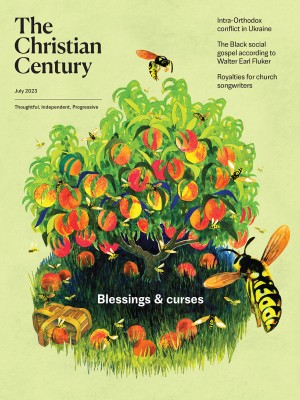July 9, Ordinary 14A (Matthew 11:16–19, 25–30)
There is a difference between work-life balance and sabbath living.
Jesus’ invitation in matthew 11 may be one of the most comforting passages in scripture: “Come to me, all you who are weary and are carrying heavy burdens, and I will give you rest.” It is an invitation to sabbath living.
Much of the chapter leading up to this consists of Jesus teaching about ways of knowing God outside theological training and strict religiosity. The scene that follows in the next chapter shows Jesus in conflict with religious leaders over rules for the sabbath. The invitation extends in both directions, to those of a misguided generation seeking the wisdom of God and to those who would seek to govern when and how to find it.
Eugene Peterson helpfully paraphrases this invitation to the modern world in The Message:
Are you tired? Worn out? Burned out on religion? Come to me. Get away with me and you’ll recover your life. I’ll show you how to take a real rest. Walk with me and work with me—watch how I do it. Learn the unforced rhythms of grace. I won’t lay anything heavy or ill-fitting on you. Keep company with me and you’ll learn to live freely and lightly.
Read our latest issue or browse back issues.
Notice that these words say as much about what kind of work makes for sabbath living as they do about rest itself. This kind of work allows for and honors real rest. It is naturally in rhythm with rest. It is what many are striving for when they talk of work-life balance. But work-life balance presumes work that is forever trying to consume more of one’s time and energy. And it puts the focus on balance, or quantity, of work and rest, rather than on quality.
Wendell Berry is undoubtedly a prophet for our times on this subject. His poetry, prose, and fiction are infused as much with talk of work done rightly as they are with ecology, economy, nature, and farming. In A Timbered Choir, his first book of sabbath poems, he writes:
Be thankful and repay
Growth with good work and care.
Work done in gratitude,
Kindly, and well, is prayer.
In How It Went, Berry’s latest collection of stories set in the fictional Port William, Kentucky, the aging Andy Catlett, often considered a stand-in for Berry, must resort to repairing a fencerow himself after the men he hired carelessly botch the job and leave a mess. He implores his student helper on the necessity of knowing how to do physical work well:
Now we’re practicing the art of loading brush. It is a fundamental art. An indispensable art. Now I know about your “fine arts,” your music and literature and all that—I’ve been to school too—and I’m telling you they’re optional. The art of loading brush is not optional.
In recent years I have come to understand firsthand the difference between striving for work-life balance and sabbath living. Several years ago my family moved to a small farm, and suddenly the weekly rhythms of our lives necessarily included many hours spent mowing, trimming trees, feeding and tending goats and chickens, rebuilding fences, and the like. The move reawakened my joy and satisfaction in working with my hands.
At the same time, I grew weary of recent turns in my nonprofit career that seemed always to result in yet longer days spent tied to a computer screen, relentless email, and a packed meeting schedule. After pandemic stresses became too much, I left an executive role in a large regional nonprofit, and now I spend half my time leading a small, grassroots housing organization and half my time self-employed as a carpenter-builder. I traded more stress and money for more time outside and working with my hands. I am happier and healthier than I have ever been in my professional life.
Earlier this year the Washington Post reported on new findings from the Bureau of Labor Statistics’ American Time Use Survey. The data shows clearly that when rated for a mix of happiness, meaning, and a lack of stress, jobs in agriculture, logging, and forestry work top the list, with construction not far behind. Though all of this work is physically taxing and involves a higher risk for injury, it apparently brings the highest level of satisfaction as well.
Clearly not all of us can become farmers and foresters. Yet we can all respond to Jesus’ call to a way of walking and working in the world that is less about striving and more about gratitude. We can advocate for systems that create space for real rest. We can keep company that helps us learn to live more freely and lightly.





